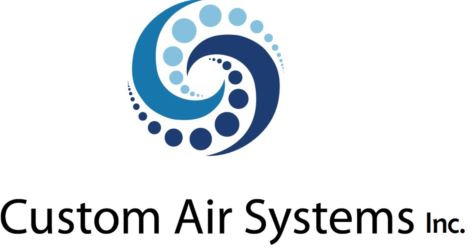
If you’re considering a new, successful career, look no further than heating, ventilation and air conditioning. HVAC is an excellent place to start, according to the U.S. Bureau of Labor Statistics, which predicts careers in this industry will grow by 13 percent by 2028.
There are several reasons why these careers are increasingly popular. One involves homeowners using government tax credits to upgrade to more energy-efficient comfort systems. It's also important to consider R-22 Freon® coolant, which impacts any system still using it. Finally, there’s the red-hot real estate market and a property shortage that’s increased the availability of new construction homes.
One of the most in-demand careers is working as an HVAC technician. Learn more about their skill set, how to become one and about how much you can expect to make.
What Are HVAC Technicians?
A HVAC technician should be able to repair, install and maintain heating and cooling systems. Most work with both homeowners and business owners. And, most importantly, you’ll receive a comprehensive education about:
- Air conditioners
- Furnaces
- Mini-splits and heat pumps
- Thermostats and home zoning
- Indoor air quality systems including air filters and air purification systems
Some apprentices even become HVAC-R technicians, meaning they also have experience with refrigeration.
Is There a Shortage of HVAC Technicians?
Experienced HVAC technicians are increasingly sought after because of shrinking labor force within the industry. There are several reasons for this discrepancy, such as more retirements and competition from other industries. Many younger people also pursue college degrees instead of a licensed trade like HVAC.
Is HVAC a Hard Career?
While HVAC often has you on your feet, it can also be very rewarding. As a technician you'll be expected to occasionally:
- Work in uncomfortable settings, including tight or dusty spaces.
- Work in hot or cold areas since HVAC systems are usually outdoors.
- Work evenings, weekends and overtime around peak demand.
A stubborn falsehood about HVAC is that it’s a blue-collar career. In truth, you'll need distinct skills, specialized education and ongoing certification.
It’s a great career choice if you want to:
- Minimize student debt.
- Avoid working at a desk or in an office.
- Have job security since HVAC positions can't be outsourced.
- Become your own boss and own your own successful business.
Is HVAC a Difficult Job?
Every job has sources of stress. HVAC technicians handle complex equipment and may be subject to cramped or uncomfortable working conditions. The proper experience and tools are helpful when resolving these concerns. What’s more, paid training and a stable workload help both installers and technicians reduce some of the most common reasons for work-related stress.
Is HVAC Hard on Your Body?
Carrying heavy equipment and performing repetitive motions are both common during HVAC work. Getting to specialized types of equipment can be exhausting. HVAC technicians should be physically fit, and you may benefit from a healthy diet and exercise regimen to remain as healthy as possible.
Are HVAC Careers at Risk Because of a Recession?
While there isn't a job that's immune to a recession, HVAC is especially reliable due to the essential nature of heating and cooling equipment. Repairs and installation are always necessary, which means professionals in HVAC can often find work in many different cities.
Is HVAC a Good Career for the Future?
As climate control technology continues to evolve, technicians and installers will become even more important. New forms of heating and cooling systems need less energy or produce it from renewable sources including solar and wind. Sustainable HVAC equipment will continue to expand, as will the need for certified HVAC technicians.
How to Become an HVAC Technician
To start a career as an HVAC technician, you’ll need a high school diploma or GED as well as technical training. Other, more specific (and higher paying) HVAC careers require additional education or certifications.
You can secure the needed certifications by taking classes at a community college or trade school. How much time is needed to become an HVAC technician relies on the program, which is typically six months to two years. Your employer might also require NATE certification. Standing for North American Technician Excellence, this key accreditation expands your technical knowledge to maximize your capabilities.
While some elements of an HVAC career could be learned on your own, getting the necessary education means a combination of classroom programs with on-site training. At the same time, HVAC careers aren't reliant on things like advanced math. While some math is involved, the bulk of an HVAC professionals’ skill set lies in critical thinking, used to identify problems and ensure quality installation.
Career Explorer reports that having experience with things like tablets, electronics and troubleshooting will be in big demand as equipment becomes capable of even more.
Another advantage of a career in HVAC is little to no student debt.
According to Midwest Technical Institute, attending a technical or trade school generally costs approximately $15,000. A community college is usually around $5,000 annually. In comparison, the standard student debt for a bachelor’s degree is $25,921.
Your Day-to-Day Schedule as an HVAC Technician
Your work schedule may vary depending on where you work. If you primarily offer repair services, you may work early, late or be on call throughout the day. For technicians or installers working in construction, you will be more likely to keep to a set schedule during normal business hours.
As a technician, your 'office' is actually all the properties you visit to complete repair, maintenance or installation work. Some jobs may require more time than others, so the number of calls you can go on may vary.
As stated previously, every now and then the job will have to be done in extreme weather as well as in difficult-to-reach places. For roles assisting customers, strong customer service skills are always welcome.
Do HVAC Careers Offer Good Salaries?? Average Salary for HVAC Technicians and Other HVAC Careers
Because HVAC is a fast-growing industry, your salary should reflect that. The national average salary for an HVAC technician is $49,242, according to ZipRecruiter. Top earners make between $56,600 and $68,000. Having said that, total compensation can depend on where you live and its cost of living. HVAC techs with enough experience to work in management in a high-paying state could make upward of six figures.
Along with starting your own business, there are other paths for career advancement. These include:
- HVAC manager, $72,515 average salary
- HVAC service manager, $71,176 average salary
Types of HVAC with the Highest Salaries
There is a lot of room for specialization in the HVAC industry, and continuing education and certification opportunities open doors for niche positions with great salaries. For example, master engineers with project management or custom system design experience could be eligible for salaries as high as six figures. Larger salaries are also more likely if you have experience with advanced equipment like commercial HVAC systems, geothermal heat pumps or radiant in-floor heating.
What States Need HVAC Workers the Most
HVAC technicians are in high demand across the United States, but particularly in states like Florida, California, Texas, New York and Illinois. According to hvacclasses.org, these states need the greatest number of HVAC professionals and are experiencing enormous growth in the construction industry. Here’s why:
- Florida: Hurricanes, education and healthcare facilities.
- California: Wildfires, transportation, energy and utility projects.
- Texas: Hurricanes, energy, utility and other infrastructure upgrades.
- New York: Residential and infrastructure updates.
- Illinois: Companies relocating to the Chicago area.
Where HVAC Technicians Will Be in High Demand in the Future
Projections Central, who develops long-term occupational projections, expects these states to have the greatest demand for technicians by 2028:
- Utah, 31.1%
- Colorado, 29.7%
- Nevada, 27.9%
- Arizona, 21.4%
- Iowa, Oregon and Montana, 18.5%
- Arkansas, 16.3%
- Florida, 16.2%
- South Carolina, 16%
- Texas, 15.9%
- Idaho, 15.7%
- Washington, 15.6%
- North Carolina, 15.5%
- Tennessee, 15.2%
- Wyoming, 14.3%
- Nebraska, 13.9%
- Indiana, 13.8%
- North Dakota, 13.8%
Here’s where the highest number of new positions during that time frame are expected to be:
- Florida, 5,420
- Texas, 5,530
- California, 4,100
- North Carolina, 2,510
- New York, 2,290
- Colorado, 2,000
- Ohio, 1,550
- Pennsylvania, 1,510
- Virginia, 1,500
- Tennessee, 1,360
- Washington, 1,290
- Georgia, 1,270
- New Jersey, 1,170
- Utah, 1,170
- South Carolina, 1,1060
- Indiana, 940
- Maryland, 820
- Missouri and Arizona, 810
- Michigan, 780
Weather and a healthy economy will further encourage growth in these states, according to hvacclasses.org.
Grow Your HVAC Career with Custom Air Systems Inc
HVAC technicians can find work just about anywhere, including in Port St. Lucie. To learn more about our openings, visit our careers page or call us at 772-247-2283 today!




